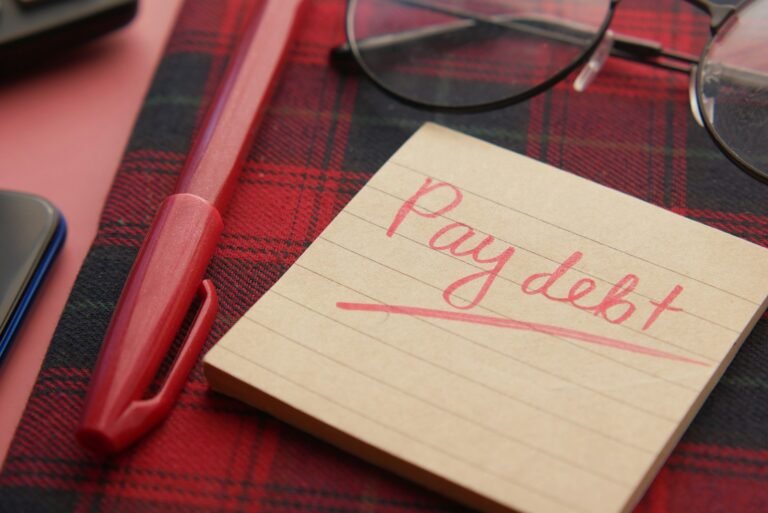How To Get A Good Credit Rating
Rating your credit is crucial for opening doors to better opportunities, like buying a home or getting a great loan interest rate. I’ve learned some simple steps that can help you improve or maintain your credit rating, making it easier to achieve your financial goals. In this post, I’ll share my tips and guide you through everything you need to know to boost your credit score and keep it glowing. Let’s get started on this journey to better credit together!
Key Takeaways:
- Pay your bills on time to establish a positive payment history.
- Keep credit card balances low relative to your credit limit to maintain a healthy credit utilization ratio.
- Regularly check your credit report for errors and dispute any inaccuracies you find.
- Avoid opening too many new accounts at once, as this can negatively impact your credit score.
- Consider maintaining a mix of credit types (such as credit cards, loans, and mortgages) to demonstrate responsible credit management.
Deciphering Your Credit Score
Your credit score can often seem like a mystery, but breaking it down reveals a clear picture of your financial health. This three-digit number, typically ranging from 300 to 850, is influenced by various factors and directly impacts your ability to secure loans, rent apartments, or even get certain jobs. Understanding the intricacies behind your score not only helps you improve it but also empowers you to make informed decisions about your finances.
The Components of Your Credit Score
How Credit Reporting Agencies Work
Credit reporting agencies, such as Equifax, Experian, and TransUnion, gather data from lenders, creditors, and other financial institutions to create your credit report. They compile information about your borrowing history, including payments, balances, and any delinquencies. This report is then analyzed to calculate your credit score, which creditors use to assess your creditworthiness when you apply for loans or credit cards. Many agencies also offer services to help consumers understand and improve their credit profiles.
These agencies collect information through a network of data furnishers, which include banks, credit unions, and large corporations. They use algorithms to evaluate the information and produce credit reports. Consumers like me can request annual free reports to stay informed. Discrepancies in my report can affect my score, so I regularly review it and dispute any inaccuracies. Understanding how these agencies operate helps me take proactive steps in managing my credit effectively.
The Financial Habits that Build Credit
Establishing and maintaining strong financial habits lays the foundation for a solid credit rating. By consciously managing your finances, I’ve found that small changes can lead to substantial improvements in your creditworthiness. Cultivating these habits over time not only enhances your score but also promotes overall financial well-being.
The Power of Timely Payments
Consistency in making timely payments significantly impacts your credit score. I’ve noticed that when I prioritize due dates, my credit report reflects a positive payment history. It’s simple: late payments can remain on your report for up to seven years, while timely payments reinforce your reliability as a borrower.
Keeping Your Credit Utilization Low
Maintaining a low credit utilization ratio is one of the easiest ways to enhance your credit rating. I aim to keep my balance well below 30% of my total available credit. This indicates to lenders that I manage my credit wisely and are less likely to overspend.
In practice, credit utilization is calculated by dividing your total credit card balances by your total credit limits. For example, if you have two credit cards with limits of $5,000 each, your total credit limit is $10,000. If your combined debt is $2,000, your credit utilization is 20%. Keeping it below this benchmark signals responsible credit management and can help boost your credit score. Regular monitoring of your credit card balances, along with paying off your statement balances in full each month, ensures that I’m staying on track and protecting my credit health.
Navigating Common Pitfalls
Life is full of financial pitfalls that can unexpectedly derail your credit score. A few unintentional missteps can have lasting consequences on your creditworthiness. Staying informed and proactive about your credit journey helps you avoid these traps and leads to a healthier credit standing.
Misconceptions that Can Hurt Your Score
Many people think their credit score gets impacted only by the amount of debt they carry. In reality, factors such as late payments, credit inquiries, and even the length of your credit history play significant roles as well. Believing that minimal debt equals a good score can lead to neglecting other important aspects that maintain your financial health.
How to Avoid Debt Accumulation
A key strategy for maintaining a solid credit score is to avoid accumulating debt in the first place. One effective way to achieve this is by creating a budget that tracks your income and expenses. By prioritizing needs over wants and setting spending limits, you can stay ahead of potential debt. Additionally, adopting the habit of paying your credit card balance in full each month helps you avoid interest charges that can pile up and create a financial burden.
Drafting a thorough budget won’t just keep your spending in check; it can also help you set aside savings for unexpected expenses, preventing the temptation to reach for credit. Checking in with your financial goals regularly ensures you’re on track. In times of financial pressure, having a separate savings fund can make all the difference, allowing you to pay for emergencies without stepping into debt. Establishing a clear plan contributes significantly to your credit health over time.
Strategies for Credit Repair and Improvement
Improving your credit rating requires a mix of vigilance and strategy. By adopting effective credit repair techniques, you can gradually enhance your financial standing. Start by identifying any obstacles that may be hindering your score, and diligently work on addressing them. A blend of responsible credit behavior, timely payments, and awareness of your credit history will surely set you on the path to success.
Reviewing and Disputing Errors in Your Credit Report
Errors on your credit report can unknowingly damage your score. I make it a priority to review my credit reports regularly for inaccuracies, like late payments or accounts that aren’t mine. If I spot errors, I promptly dispute them with the credit bureaus, providing documentation to support my claims. Correcting these mistakes can result in a significant boost to my credit score.
Effective Techniques for Rebuilding Your Score
As I focus on rebuilding my credit score, I find that several effective techniques come into play. Maintaining a low credit utilization ratio is important; I aim to keep it below 30%. Paying down existing debts, setting up automatic payments, and ideally securing a secured credit card can steadily improve my score. Additionally, regular monitoring of my credit report helps me stay on track and celebrate improvements along the way.
One powerful technique I’ve found useful is diversifying my credit mix. Incorporating different types of credit, such as a credit card, an auto loan, or a small personal loan, can positively impact my score over time. I always prioritize making on-time payments, as payment history accounts for a significant portion of my credit score calculation. Another helpful approach is becoming an authorized user on a trusted friend’s or family member’s credit card. If they consistently have a good payment history, their positive actions can reflect favorably on my credit report. Keeping these strategies in mind helps me to actively shape a better credit future.
The Long-term Impact of Your Credit Score
Your credit score’s influence extends far beyond just securing loans. A strong credit score can pave the way for better interest rates, which can save you thousands over the life of a mortgage or auto loan. Moreover, it can affect your ability to rent a home, and some landlords may even check your score before approving your application. You might be surprised to learn that future employers may consider your credit history as well, especially for positions that involve financial responsibility.
Beyond Borrowing: The Role of Credit in Insurance and Employment
A good credit score can lead to lower insurance premiums and better job opportunities. Many insurance companies utilize credit scores to determine your risk level, translating into savings on policies. Likewise, some employers conduct credit checks as part of their hiring process, particularly in finance-related fields. A strong credit score signals trustworthiness, enhancing your prospects in both employment and insurability.
Planning for Future Financial Goals
Your credit score plays a key role in helping you attain future financial goals. Whether you’re aiming for a dream home, investing in a business, or saving for your children’s education, a robust credit score can make these aspirations more attainable. Potential lenders will evaluate your creditworthiness, and a solid score often results in favorable lending terms, allowing you access to larger sums of money at better interest rates.
Having a clearly defined strategy for maintaining a high credit score is vital for your long-term financial health. For instance, if you plan to apply for a mortgage in the next few years, keeping your credit utilization below 30% and making timely payments can help you secure a lower interest rate. Furthermore, being proactive about monitoring your credit report can help you spot and resolve issues before they hinder your plans. Setting regular financial check-ins can keep you accountable and focused on reaching those significant milestones you’ve envisioned for your future.
Conclusion
Following this guide has helped me understand how to build a good credit rating. By regularly checking my credit report, paying bills on time, and keeping my credit utilization low, I’ve seen my score improve over time. I encourage you to take these steps to boost your creditworthiness. It’s a journey, but with patience and discipline, you can enjoy the benefits of a solid credit rating and have a better handle on your financial future!
FAQ
Q: What is a credit rating and why is it important?
A: A credit rating is a numerical representation of an individual’s creditworthiness based on their credit history, payment behavior, and overall financial management. A good credit rating is important because it can affect your ability to obtain loans, secure favorable interest rates, and even impact rental applications. Lenders use credit ratings to assess risk, so a higher score generally opens up more financial opportunities.
Q: How can I improve my credit rating quickly?
A: Improving your credit rating quickly can be achieved by paying off any outstanding debts, making all future payments on time, and reducing your credit utilization ratio. This ratio indicates how much of your available credit you are using; keeping it below 30% is generally advised. Additionally, reviewing your credit report for errors and disputing any inaccuracies can also contribute to an improved rating.
Q: Does applying for new credit affect my credit rating?
A: Yes, applying for new credit can temporarily lower your credit rating. When you apply for a new credit account, a hard inquiry is made on your credit report, which can decrease your score by a few points. However, if you manage the new credit responsibly by making timely payments and maintaining a low credit utilization ratio, the long-term effect could be positive.
Q: How often should I check my credit report?
A: It’s advisable to check your credit report at least once a year to ensure its accuracy and to monitor for any changes that might affect your credit rating. Many financial experts recommend checking every three to six months, especially if you are planning to make a significant financial decision, such as applying for a mortgage or car loan. Regular checks help you catch any errors promptly and take action if necessary.
Q: Can I build a good credit rating without credit cards?
A: Yes, it is possible to build a good credit rating without having credit cards. You can establish credit through other means such as taking out installment loans, like auto or student loans, and making consistent, on-time payments. Additionally, alternative credit sources, like rent reporting services, can help demonstrate your creditworthiness if you don’t have traditional credit accounts.








